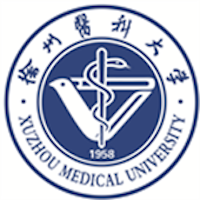XZMU started its five-year undergraduate program in 1958 and adult continuing education programs in 1960. In 1985, the university was authorized to confer master’s degree. In 1993, the university began its joint PhD training programs with many famous medical universities in the nation. In 2005, the university was approved to recruit international students. In 2013, the university was authorized to award doctoral degree.
XZMU has established friendly relationships with dozens of colleges, universities and institutes from around the world through years of initiatives to promote international cooperation. Various forms of cooperative programs have been effectively carried out, including the faculty and students exchange programs, visiting scholar programs.
About Xuzhou
Xuzhou, known as Pengcheng in ancient times, is a major city in and the fourth largest prefecture-level city of Jiangsu Province, China. It is known for its role as a transportation hub in northwestern Jiangsu, as it has expressways and railway links connecting directly to the provinces of Henan and Shandong, the neighboring port city of Lianyungang, as well as the economic hub Shanghai.
Xuzhou has a monsoon-influenced humid subtropical climate, with cool, dry winters, warm springs, long, hot and humid summers, and crisp autumns. The monthly daily average temperature ranges from 0.4 °C (32.7 °F) in January to 27.1 °C (80.8 °F) in July; the annual mean is 14.48 °C (58.1 °F). Snow may occur during winter, though rarely heavily.
Campus
The university has four campuses, covering an area of over 80 hectares. It consists of 19 departments and 14 affiliated hospitals, and has a student body of more than 11,000, including students from Hong Kong, Taiwan and the overseas. The main campus has large green areas and modern buildings. The facilities for teaching sports and living are excellent.
Living in University
Every year holds various extracurricular activities are held. Within the campus international students can participate sport activities, singing and dancing programs, Chinese speech contest, cooking contest etc. The School of International Education of XZMU supports different kind of festivals. Trips to local places of interest, parks and picnics are often organized. Outside the campus students can be organized to go to residential communities to give voluntary medical consultation or to visit social welfare institutions to give care.
Show less







